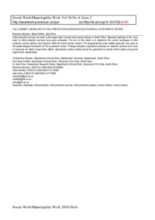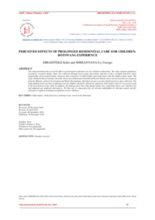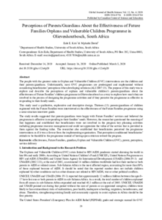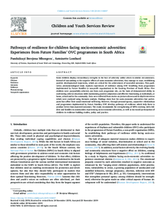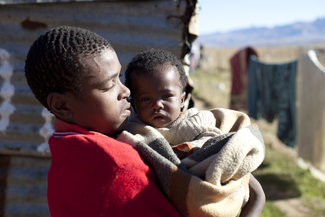

Displaying 151 - 160 of 576
The aim of this article is to determine the current landscape of child protection service delivery and research within the South African context.
All over the world, the pandemic has turned children's lives upside down. In this episode of Save the Children Documentary, they share their stories.
This foundational chapter attempts to provide readers with content to assist in their understanding of the characteristics, role, and experiences of kinship elderly caregivers of children affected and/or infected by HIV and AIDS.
This paper reports on a longitudinal study of young people transitioning out of care and journeying towards young adulthood over a period of five years.
This study determined the perceived effects of prolonged residential care for children in Botswana.
The purpose of this study was to explore and describe the perceptions of orphans and vulnerable children’s parents/guardians about the effectiveness of Future Families’ children programme in Olievenhoutbosch as a way to explore how much they are involved in the process of designing the programme activities and if they perceive the programme as effective in responding to their family needs.
This article explores and presents the voices of children regarding how they experience their participation in multidisciplinary meetings at a child and youth care centre.
This is a qualitative study aimed to explore the need for preparing children ageing out of foster care for independent living in South Africa.
The aim of this article is to discuss the social justice implications for educational psychologists working with orphans and vulnerable children (OVC) who comprise 3.7 million of the population in South Africa.
This qualitative, phenomenological study explores experiences of resilience among OVC benefiting from programmes implemented by Future Families (a non-profit organisation) in the Gauteng Province of South Africa.

